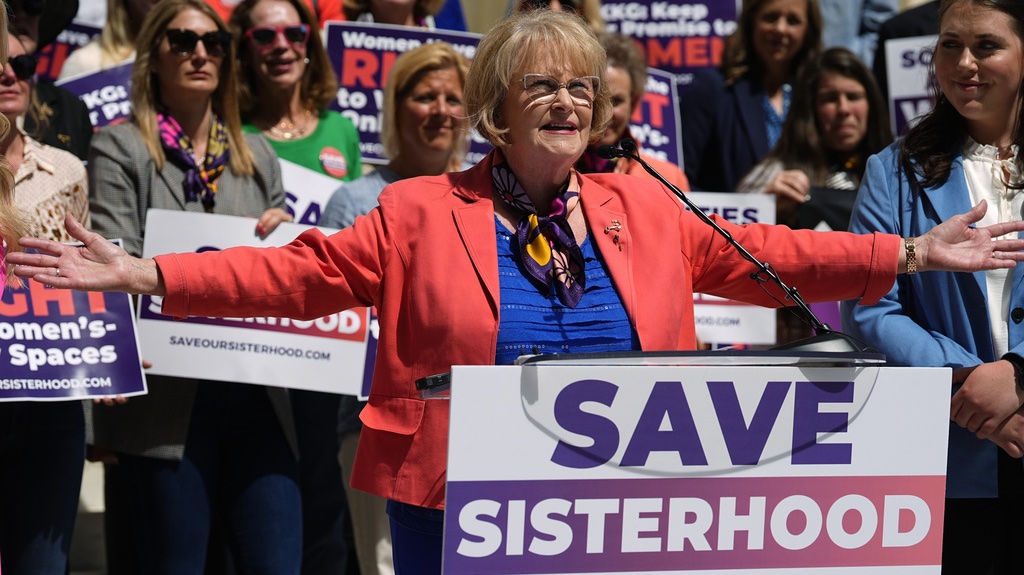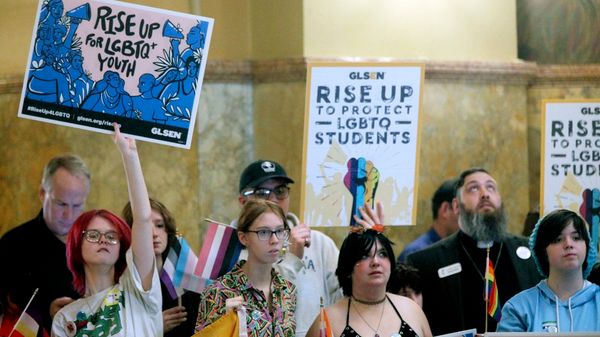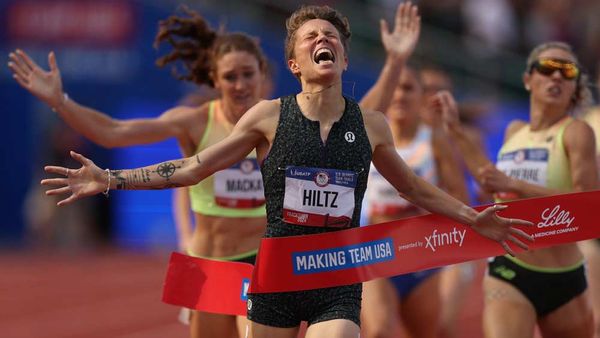July 21, 2010
Straight Man Killed in NJ Cruising Crackdown?
Kilian Melloy READ TIME: 5 MIN.
A married businessman in town for a class reunion allegedly approached a police officer in a Newark, New Jersey, park, and propositioned him for sex. What happened next, the alleged suspect's friends and family say, beggars belief: when the officer attempted to arrest him, the man threw the officer to the ground and took off. When the officer caught up with him, the suspect reportedly tried to attack the officer, who shot him down; three hours later, the suspect died in a local hospital, according to a July 20 New York Times article.
The suspect in the case was DeFarra "Dean" Gaymon, 48, a father of four and head of the Credit Union of Atlanta. The park in question was Branch Brook Park, a well-known gay cruising ground.
But Gaymon's surviving family members indicated in a statement that they did not believe the story about what happened that Friday night, July 16. "We know that the police killed an innocent man, with no history of or disposition towards violence," the statement declared.
The article described the events leading up to the tragedy as fairly typical: a pair of undercover police officers were patrolling the park, on the lookout for public sexual activity. The unidentified police officer had become separated from his partner at about 6:00 that evening, having lost his handcuffs while pursuing a suspect. It was while retrieving his lost handcuffs that the officer allegedly encountered Gaymon, who, according to officials, was already displaying sexual conduct when the two encountered one another. Officials say that Gaymon then propositioned the officer, at which point the officer identified himself. Gaymon allegedly then knocked the officer down and fled, leading to the chase, the confrontation, and the shooting.
"All the people that knew him say you never met a kinder, nicer, more gentle person, and they're stunned about what happened," the Montclair High School Alumni Association's John Joyce told the New York Times. Gaymon had helped to organize the 30-year reunion of his Montclair high school class, the article said.
The incident marked the sixth fatal police shooting in Newark, according to a July 20 article in local newspaper the Star-Ledger, though no other shootings took place during police patrols of the park, which is known as a cruising area. Police have responded to complaints about public sex in the park by stepping up patrols there, and have arrested about 200 men in the last year and a half.
The police expressed their condolences over the shooting, but Gaymon's family members reiterated their doubts. "There's nothing threatening about his character," Kelly Gaymon Armstrong, the sister of the deceased, told the Star-Ledger. "He's a softie. It doesn't add up."
Said former Montclair classmate Kerry Asbury, "[Reunion attendees] were shocked to hear about the death. He wasn't that type of guy. But we don't know what happened." Added Asbury, "I'm just saying, don't pass judgment if you don't know what happened."
An officer with the Newark police envisioned a situation in which "[Gaymon's] life must have flashed before his eyes and he went into a panic."
"We're saddened by this tragedy and our heartfelt condolences go out to his family," said Sheriff Armando Fontoura.
The 29-year-old officer who shot Gaymon is an eight-year veteran of the force, media stories said, and was so "traumatized" by the shooting that he was treated with medication.
Crackdowns Nationwide
Around the country, crackdowns on public sex and cruising have taken place in recent years. In Los Angeles, police stepped up patrols of local parks known to be cruising areas for men who have sex with men (MSMs), and nabbed more than 90 suspects in a short time in one park alone. Many of those arrested were married Hispanic men who identified as straight men, according to local media reports.
Last year, Boston police began to crack down on cruising in the city's Victory Gardens, located in the Fenway, which is historically a gay cruising ground. Locals say that the police presence has not declined since the crackdown began in the late summer of 2009.
Parks are not the only places where police have stepped up efforts. Police stings seemed to increase in public restrooms in the immediate aftermath of the Larry Craig scandal three years ago. After the former senator of Idaho was arrested and charged with trying to solicit sex from an undercover police officer in an airport restroom, some groups claimed that police attention to restrooms elsewhere in the country seemed to be spiking. In Clayton Township, Michigan, local GLBT advocacy group Triangle Foundation said that police stings were increasing at area public facilities.
"These situations have always been bad," Sean Kosofsky, the public policy director for Triangle Foundation said, "but the fact that we just saw a wave of them all happen at once in jurisdictions where we weren't hearing about them before makes us concerned that this is a response to Craig."
A Nov. 28, 2007 EDGE article examined charges that police were not merely observing to ensure that public sex was not taking place in restroom facilities, but were coming on to men, which Kosofsky said was "entrapment."
"They're encouraging men to break the law and then charging them with crimes they didn't commit," Kosofsky claimed, saying that undercover police would smile at men, give them suggestive looks, and even initiate sexually loaded conversations. "Having conversations about sex in public are legal," Kosofsky said. "As long as it doesn't involve a minor or money, you can do it. And none of these men are involved in paying for anything or involved with cruising minors, yet they're all being charged with crimes. Because they're so humiliated, they'll plead down to anything or pay any fine to make it go away."
Accusations of police entrapment also surrounded a rash of arrests made in New York city at adult video shops like Blue Door Video, where arrestees claimed that they were subjected to a police tactic in which a gay man--often, but not always, middle aged--is approached by a handsome younger man, an undercover officer who suggests consensual sex, and then, as the two exit the building, offers to pay for the sexual encounter.
At that moment--before the target has time to respond--numerous additional undercover officers pounce, handcuffing and arresting the older man for "loitering for the purpose of prostitution." A number of men in Greenwich Village claimed last year to have been so targeted. Critics claimed that the police were trying to depict a pattern of criminal conduct taking place at targeted adult businesses in order to close those establishments down.
A Dutch policy on public cruising that permits it in specified areas stands in contrast to the American approach, a May 1, 2008 EDGE article reported. Kosofsky was interviewed for this article as well, telling EDGE, "Police entrapment against gay men has been going on for a very, very long time; and one can argue that there is an equal protection or profiling element. There are never operations to go after heterosexual cruising behavior."
Whereas straight men cruise for sexual partners "at the supermarket, at church and at the ballgame" without fear of legal repercussion, Kosofsky said. But gays are targeted for the same behavior--because of the gender of their prospective sexual partners. "People may find cruising to be distasteful, but straight people do it all the time and don't consider it lurid," Kosofsky noted. When it comes to sting operations, however, "Police have misled the public into believing that these arrests are rooting out sex offenders."
Kilian Melloy serves as EDGE Media Network's Associate Arts Editor and Staff Contributor. His professional memberships include the National Lesbian & Gay Journalists Association, the Boston Online Film Critics Association, The Gay and Lesbian Entertainment Critics Association, and the Boston Theater Critics Association's Elliot Norton Awards Committee.






